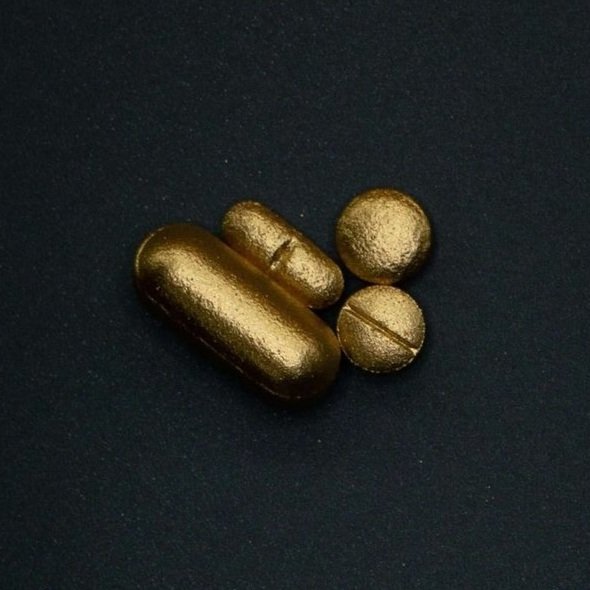What is ADHD? (Understanding Symptoms Like Dopamine Seeking and Impulsivity)
/So, you think you have ADHD, now what?
Impulsivity, dopamine seeking, hyperfixation and poor memory recall are a few of the common symptoms someone with ADHD may experience. Living with ADHD can be frustrating, but there are ways to manage it- even without medication. Keep reading to learn the brain science behind ADHD and the tactics to reduce and resolve ADHD symptoms.
What is ADHD?
Those with ADHD are likely not lacking in acquaintances with the same diagnosis. Attention-Deficit/Hyperactivity Disorder is a common neurobehavioral disorder that affects an estimated 6.1 million children and 10 million adults. That is a LOT of people suffering with the same symptoms. This means, there are also a LOT of people who have already found the solutions that work best!
How do you know if you have ADHD?
Commonly discussed symptoms of ADHD include:
lack of focus
fidgeting/inability to sit still
poor impulse control
ADHD can also contribute to executive function impairments, too, causing those who do have ADHD, but do not present the most common signs, to go undiagnosed.
Additional struggles of ADHD include:
forgetting to eat or drink
hyper-fixations
feeling socially awkward
mood swings
anxiety
forgetting thoughts seconds after thinking them
choice paralysis
difficulty switching tasks
chronic lateness
losing items
financial problems
an “all or nothing” mentality
low tolerance for frustration
messiness
losing objects frequently
mania
ADHD and the brain
Research studies show that the brain of someone with ADHD could show differences in neurotransmitters (namely catecholamines) in the prefrontal cortex. The prefrontal cortex is an essential player in executive functioning allowing us regulate attention (the dorsal and lateral prefrontal cortex) and regulate emotion (the ventral and medial portion.) This is why, for some people, mood swings and emotional dysregulation can come hand in hand with ADHD.
Dopamine seeking
Impulsivity and dopamine seeking in those with ADHD may be due to the receptors (the proteins that help neurotransmitters communicate) within the prefrontal cortex, namely the D1 receptor, which has a relationship with the hormone (and catecholamine), dopamine. The brain has a natural dopamine reward system that motivates and reinforces positive behaviors: doing something “good,” like completing a task, typically results in a rush of “feel good” chemical dopamine.
For the ADHD brain, there can be genetic changes that cause changes in the levels of catecholamines like dopamine, which computes to a lowered sense of “reward” when completing tasks or staying focused. This means someone with ADHD may experience less “reward” feelings after completing typical tasks AND be at a higher risk for impulsive behaviors (seeking tasks with the highest level of dopamine rush possible). Examples of impulsive behaviors include gambling, compulsive shopping, drug usage, and attention-seeking behaviors.
Medication for ADHD
Psychotropic and nootropic prescription drugs like Focalin and Adderall are widely used in ADHD treatment. Medications like these are among those most common treatments, with it shown in studies that these stimulants have had positive effects on areas like academic performance. For some people, sticking to a medication regimen works. Using pharmaceuticals can come with negative side effects, though, and those who do not wish to use psychotropic drugs as treatment for ADHD can turn to alternative treatment options that help.
ADHD treatment without prescription medication
Those looking for alternative and holistic methods to ADHD treatment are not out of luck. Non-prescription nootropics (we’re not talking about adderall, which is a prescription nootropic) are a holistic method that has been shown to help with the deficits of ADHD and improve cognitive performance when taken regularly. Common nootropics that have been shown to be useful for attention issues include l-theanine and l-tyrosine. Meet with a holistic medical provider like our nurse practitioner Jeannie Wilkins find the right routine for treatment, whether that be with medication or supplements.
LENS Neurofeedback is a methodology that has also shown to be a safe alternative for managing ADHD (among other benefits). Learn more about LENS by clicking here.
Behavioral therapy can also be incredibly effective for ADHD, especially when used in conjunction with other methods like medications, supplements or LENS Neurofeedback. Types of therapy that are used to mitigate ADHD symptoms and help clients form habits that create new neural pathways that reinforce positive behaviors include: CBT therapy, memory training, meditation, and social skills training. Click here to book with a therapist.
Stigma behind ADHD diagnoses
Despite the growing frequency of ADHD diagnoses in the United States, feeling shame and stigma about ADHD is common and leads to avoidance of diagnosis and thus not receiving the treatment that could vastly improve quality of life. Hesitance to prescription psychotropic medications and the growing distrust of pharmaceutical companies both may play a part in this resistance. Whatever the reason for this stigma, the growing number of diagnoses, the strengthening of research and education about the various ways ADHD can present itself, and the rise in talking about ADHD on social media have contributed to a wider general acceptance of the disorder.
Does ADHD get worse if left untreated?
Long term, ADHD without any type of treatment (meaning limited or no medication usage, supplement or vitamin regimine, or education from behavior therapy interventions) could have negative outcomes on financial and job stability, self esteem and social function. We get it, this makes ADHD sound terrifying- and like something that could cause a fearful-avoidant streak to flare up- but due to the massive reduction of stigma, keep in mind that there is no shame with having an ADHD diagnose. With a bit of work, seeing progress (even without the use of medication!) is inevitable.
How to talk to a Doctor about ADHD
Talking to a doctor about anything can feel like a daunting process. When it comes to a diagnosis that comes with a tendency for being prescribed a stimulant, there can be a fear of being turned away for being misjudged as a drug-seeker, or on the other hand, fear of being prescribed a powerful stimulant with no alternative methods for treatment. While feeling this anxiety is understandable, there are doctors and practitioners who are experienced in diagnosing and treating ADHD with not only the best medications, but also supplements and nootropics for those who do not want to rely on pharmaceutical medications. It’s as simple as asking a doctor or nurse practitioner about ADHD, and what methods, including alternative methods, might help.
How to know if ADHD treatment is working
For most people, if you know, you know. The positive effects of prescription medication can often be felt that same day: there may be increased focus, decreased distractibility and emotional outbursts. Depending on what route you take, feeling the positive effects of treatment may take a little bit longer. Every person is different, and it’s important to meet with a professional periodically to adjust dosages and discuss effectiveness of the methods used.
There isn’t a one-size-fits-all solution to ADHD, but there are methods that work. The growing willingness of people to discuss their own mental health struggles has helped ignite a widespread shift in the stigma behind ADHD. Education, and the realization that everyone has the ability to thrive, are helping more and more people find the right treatment options and excel in life.
Sources: Ahn, James, et al. “Natural Product-Derived Treatments for Attention-Deficit/Hyperactivity Disorder: Safety, Efficacy, and Therapeutic Potential of Combination Therapy.” Neural Plasticity, Hindawi Publishing Corporation, 2016, https://www.ncbi.nlm.nih.gov/pmc/articles/PMC4757677/.
Bloemendaal, Mirjam, et al. “Neuro-Cognitive Effects of Acute Tyrosine Administration on Reactive and Proactive Response Inhibition in Healthy Older Adults.” ENeuro, Society for Neuroscience, 30 Apr. 2018, https://www.ncbi.nlm.nih.gov/pmc/articles/PMC6084775/.
Brennan, Avis R, and Amy F T Arnsten. “Neuronal Mechanisms Underlying Attention Deficit Hyperactivity Disorder: The Influence of Arousal on Prefrontal Cortical Function.” Annals of the New York Academy of Sciences, U.S. National Library of Medicine, 2008, https://www.ncbi.nlm.nih.gov/pmc/articles/PMC2863119/.
“Data and Statistics about ADHD.” Centers for Disease Control and Prevention, Centers for Disease Control and Prevention, 23 Sept. 2021, https://www.cdc.gov/ncbddd/adhd/data.html.
Enriquez-Geppert, Stefanie, et al. “Neurofeedback as a Treatment Intervention in ADHD: Current Evidence and Practice.” Current Psychiatry Reports, Springer US, 28 May 2019, https://www.ncbi.nlm.nih.gov/pmc/articles/PMC6538574/.
Ginsberg, Ylva, et al. “Underdiagnosis of Attention-Deficit/Hyperactivity Disorder in Adult Patients: A Review of the Literature.” The Primary Care Companion for CNS Disorders, Physicians Postgraduate Press, Inc., 2014, https://www.ncbi.nlm.nih.gov/pmc/articles/PMC4195639/.
Kahathuduwa, Chanaka N, et al. “Effects of L-Theanine-Caffeine Combination on Sustained Attention and Inhibitory Control among Children with ADHD: A Proof-of-Concept Neuroimaging RCT.” Scientific Reports, Nature Publishing Group UK, 4 Aug. 2020, https://www.ncbi.nlm.nih.gov/pmc/articles/PMC7403383/.
Keilow, Maria, et al. “Medical Treatment of Attention Deficit/Hyperactivity Disorder (ADHD) and Children's Academic Performance.” PLOS ONE, Public Library of Science, https://journals.plos.org/plosone/article?id=10.1371%2Fjournal.pone.0207905.
“Neurotransmitters and Receptors (Article).” Khan Academy, Khan Academy, https://www.khanacademy.org/science/biology/human-biology/neuron-nervous-system/a/neurotransmitters-their-receptors.
Shaw, Monica, et al. “A Systematic Review and Analysis of Long-Term Outcomes in Attention Deficit Hyperactivity Disorder: Effects of Treatment and Non-Treatment.” BMC Medicine, BioMed Central, 4 Sept. 2012, https://www.ncbi.nlm.nih.gov/pmc/articles/PMC3520745/.
Wilens, Timothy E, and Thomas J Spencer. “Understanding Attention-Deficit/Hyperactivity Disorder from Childhood to Adulthood.” Postgraduate Medicine, U.S. National Library of Medicine, Sept. 2010, https://www.ncbi.nlm.nih.gov/pmc/articles/PMC3724232/.










